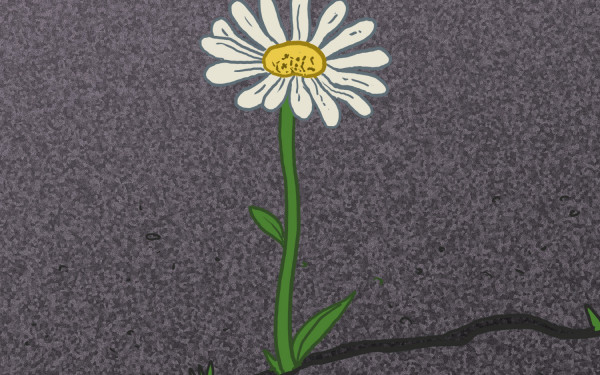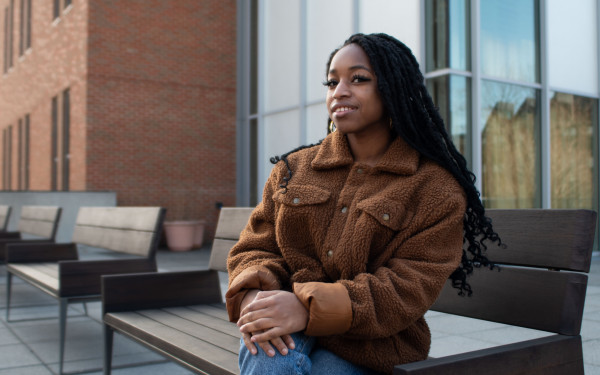What radicalized you?
Radicalization stories come in all shapes and sizes. Here are but a few
Kalden Rangdrol Dhatsenpa
I feel most people in North America were radicalized by electoral political figures like Jack Layton or Bernie Sanders. As a child of Tibetan refugees, displaced thousands of kilometres away from my fatherland, I’ve never had the privilege of not caring about politics. I was politicized at birth.
The small Tibetan community here protested often. At a young age I was protesting the shooting of Tibetan refugees by China in the Nangpa La Pass, Bombardier building a railway into Tibet—an effort by the state to further its colonial presence. Protesting to build awareness of our political situation, and to ask for help.
Politics were always present in my existence as a refugee, yet I still did not fully understand the political forces at work around me. I only knew of their presence and immensity and how it could displace my hundreds of thousands across the globe in its throes.
Megan Sicard
During my second year as a psychology undergrad, my statistics professor was illustrating a range of salaries on the whiteboard. The diagram exposed the disproportionately high amount of people unable to cover the cost of basic necessities, contrasted by a small subpopulation who were wealthy enough to buy a new island every single day if they wanted to. I was prepared to discuss how we could fix that gap, to ask how we could redistribute the wealth to assure that the majority can live adequately and with dignity. However, our class merely used numbers to generate statistics. Following that experience, I dropped all of my courses and changed programs.
That was my first step towards class consciousness. Now, with the knowledge from my studies and personal research, I can understand that capitalism is the root of all social issues. A problem that requires a radical approach as a solution. I love humans, I love my community, I love Mother Earth—and that is the core reason why I’ve become radicalized.
Brogan Romano
Growing up in working-class London with an immigrant dad and Cockney mum was definitely a starting point in my journey to radicalization. My parents never spoke about politics and we didn’t watch the news—we read tabloids. However, we always criticized the rich. I knew my life wasn’t as hard as some people’s, but I definitely knew what struggling felt like. I knew from a young age that my dad had a hard life growing up.
He worked from the age of six selling cigarettes in the Gulf of Naples and he has no official education. To this day his stories make me cry. What officially started me off was The Hunger Games trilogy that I read at 13-years-old. I knew it wasn’t real, but I saw similarities in my everyday life. Greedy and selfish bourgeoisie obsessed with being entertained by the working class. Now at 20-years-old, I know how much there is still to learn, but I’m proud of 13-year-old me for starting it off.
Elias Grigoriadis
My road to radicalization began over the course of a week I like to call “Elias Gets Mad at Everything.” In the later stages of high school and most of my first year in CEGEP, I had considered myself a liberal and held left-leaning views about most things, but the route to the person I am today made me not only confront my own privilege but look into ways to rectify it.
It was all the way back in July 2016 when I finished Ntozake Shange’s For Colored Girls Who Have Considered Suicide / When the Rainbow Is Enuf. I already was somewhat aware of the institutional racism plaguing the world but finishing that book only for a Black man by the name of Alton Sterling to be murdered in Louisiana by a police officer a day later had a profound effect on me. A few days later I picked up Are Prisons Obsolete? by Angela Davis and never looked back.
Sophie Dufresne
I know it’s stereotypical, but I read The Communist Manifesto in secondary 4 and was surprised by how it was still so relevant to today’s society. One passage that caught my attention described the status of women as “instruments of production” for the bourgeoisie. Karl Marx and Friedrich Engels saw communism as the solution to this objectification of women, which inspired the Marxist-feminists of the 19th and 20th centuries.
The more I read into Marxist-feminism, the more it became obvious to me that capitalism is at the root of the patriarchy. Since abolishing class is the only way to abolish the social hierarchy, I realized that the only way to abolish the gender hierarchy is by abolishing gender itself. So, that is how I became the gender anarchist Marxist-feminist I am today.
Nanor Froundjian
For me, it was more about broadening how much of the world I saw and how much I wanted to keep learning about. Seeing how the realities of war impact your country and your people tends to accentuate a dreading feeling of helplessness.
A class I took last year opened my eyes to human rights injustices and how some people’s daily realities almost seemed fictional. One disturbing realization that was solidified through our learnings was that institutionalized human rights serve to protect the system of power more than the people they set out to protect. Human rights laws and organization’s mission statements seem perfect on paper, but applying them to the real world is a different ballgame. Money, power, and corruption are the controlling elements that govern the decision-making processes of political leaders—the consequences affect innocent populations. But, you don’t even have to cross borders or oceans to see just how messed up the world can be.
Ashley Fish-Robertson
When I sought help for generalized anxiety disorder a few years ago, I was shocked at how draining the process was. Since I had no family doctor at the time, my best option was to make an appointment at a walk-in clinic. Several of these visits proved useless, with the doctor telling me each time that they couldn’t prescribe me medication as I had no family doctor. In addition to this, the average wait time to speak to a psychologist was two months.
It shouldn't be this difficult to receive help, especially for those who may be in urgent need. I soon began to lose faith in a system that conveniently turns a blind eye on those with mental health concerns. After being assigned a family doctor several months ago, I am still noticing that my mental health concerns are being overlooked, causing me to wonder if there will ever come a day when reaching out for help won't be so draining.
From my experience, I believe that there should be more support groups for those dealing with mental illness and that finding a psychologist should be accessible for anyone. Those seeking help need it immediately, and shouldn't be forced to wait months for intervention. I'm also hoping that there will come a day when people are more eager to engage in conversations surrounding mental illness and its symptoms, not just mental health. These conversations may be uncomfortable for some, but they're necessary.
This article originally appeared in The Resistance Issue, published April 13, 2021.

_900_600_90.jpg)





